―
Poverty and inequality in numbers
―
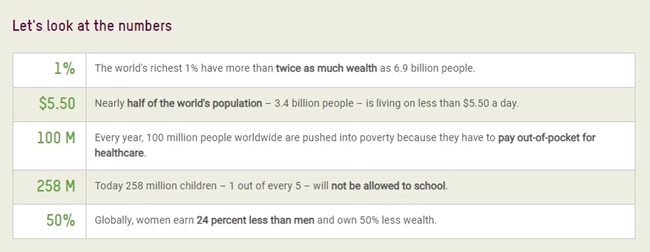
https://www.oxfam.org/en/what-we-do/issues/extreme-inequality-and-essential-services (Source: Oxfam)
◎ 1% - The world’s richest have twice as much wealth as the remaining 6.9 billion people.
◎ $5.5 – 3.4 billion people, half of the world's population, live on less than $5.5 a day.
◎ 100 million people – Every year, 100 million people are driven into poverty because of medical expenses.
◎ 258 million people – 258 million children (1 in 5) are out of school.
◎ 50% - Women earn 24% less and own 50% less wealth than men.
These are the current global inequality figures analyzed by Oxfam, an international organization that has consistently raised their voices on poverty and inequality. Oxfam says the world has been getting more unequal every year since 2008.
―
Aggravated inequality after coronavirus
―
In October, Oxfam released the “2022 Action Indicators for Resolving Inequality Report,” which is published every two years.
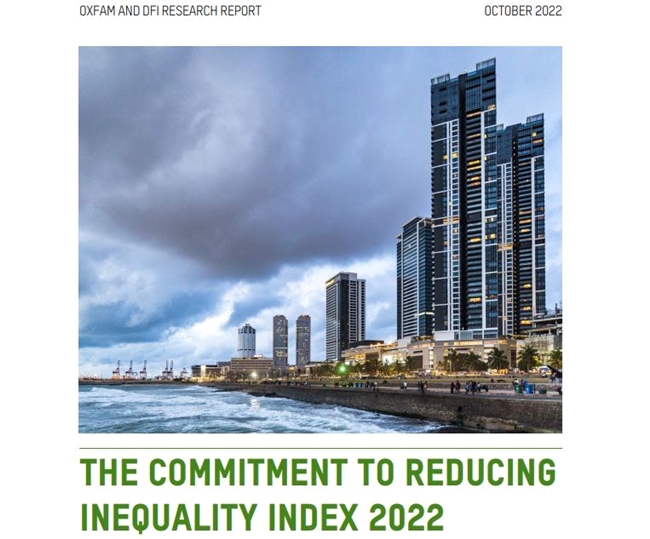
This year's report compiles the results of efforts made by governments of 161 nations around the world to reduce inequality with a focus on "public services", "tax system" and "labor rights" from 2020 to 2022, the period of the corona pandemic.
The report highlights the fact that COVID-19 has exacerbated inequality around the globe. According to the report, about half of low- and low-middle-income nations cut spending on health, education and social security during the pandemic.
In addition, 50% of nations surveyed worldwide cut social security spending and 70% cut education spending. Nations whose minimum wage growth rate does not even reach the GDP growth rate account for two-thirds of the total target nations.
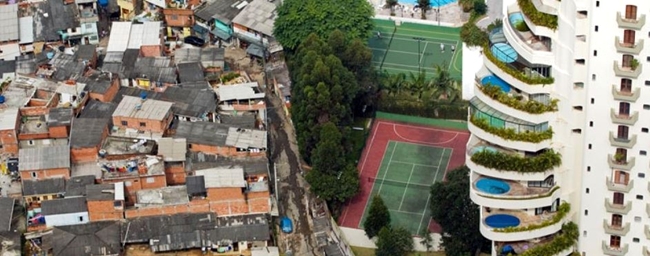
(Image source: Oxfam)
On the other hand, the wealth of the rich increased greatly. The report pointed out that 143 out of 161 countries surveyed did not raise tax rates for the wealthiest during the coronavirus period, and 11 countries implemented tax cuts for the wealthiest. Only seven countries have raised taxes on the wealthy.
―
High-income countries take the lead in reducing inequality
―
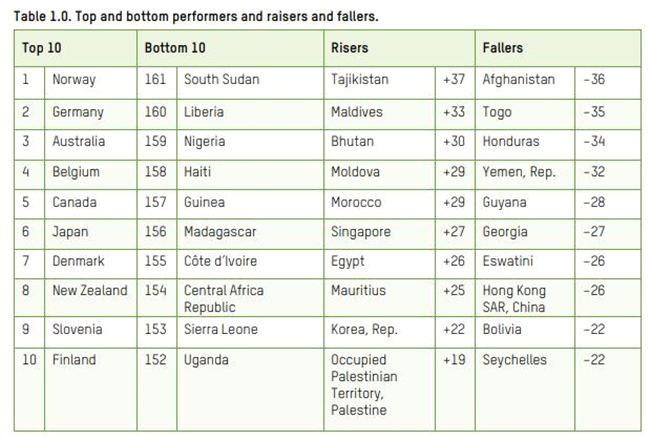
The top 10 countries leading the way in reducing inequality are all rich OECD countries. Norway ranked first in the index for reducing inequality again this time from 2020, followed by Germany, Australia, Belgium, Canada and Japan.
Why is it that wealthier countries have reduced inequality so much? It is owing to taxes—because wealthier countries have more high-income earners and businesses, making it easier to secure tax revenues. These nations have more money to spend on public services and social security than others.
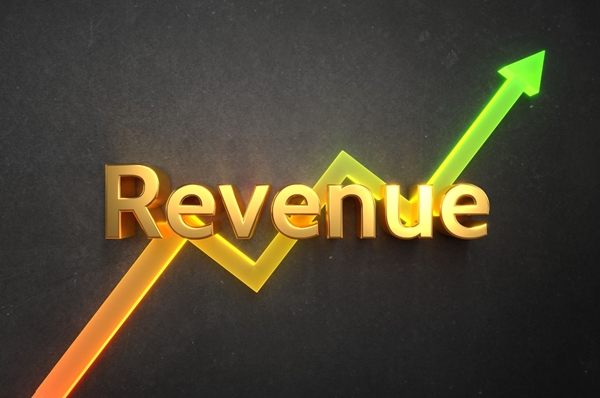
Low-income countries are ranked at the bottom of the scale. South Sudan, at the bottom, was ranked the lowest this year since 2020. Next, Liberia, Nigeria, Haiti, and Guinea had the highest inequality, mostly due to internal conflict and political unrest.
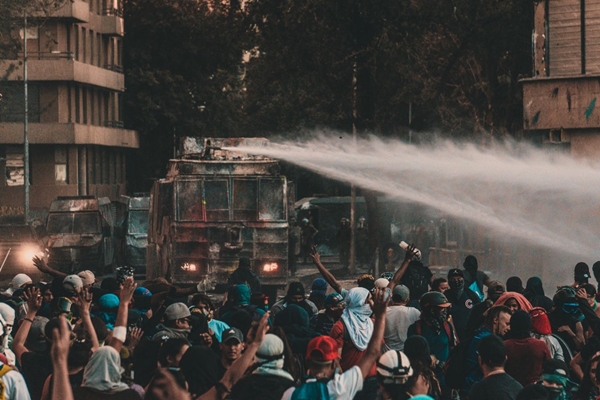
―
Countries that have risen in the rankings
―
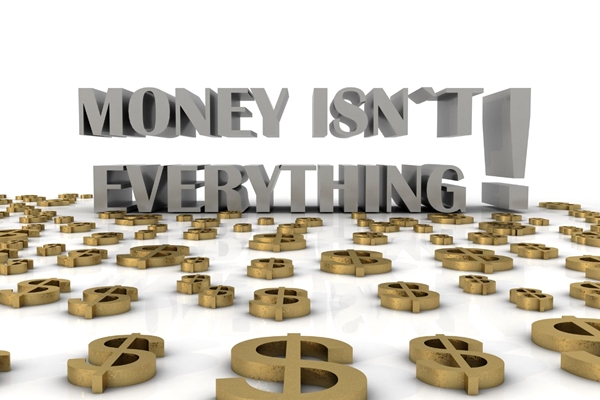
There are countries that are not high-income countries, but have reduced inequality. Inequality has improved significantly in five countries: Tajikistan, Moldova, Bhutan, Palestine and Egypt.
What changes occurred in these countries? Inequality improved by increasing personal income tax revenue in Tajikistan, allowing parental leave and reducing unemployment in Moldova, increasing personal income tax rates for the richest in Bhutan, and markedly raising minimum wage and social spending in Palestine.
Senegal as a nation has moved up 10 notches. They increased the education budget 20% and social security 33%, making it the largest government spender on public services in West Africa. President Maki Sal, who was also the fourth recipient of the SunHak Peace Prize, promised this September in public that he will reduce social, economic and geographic inequality by improving access to public services such as health, education and sanitation.
Meanwhile, South Korea has the highest inequality improvement in the world. In Korea, spending on public services has increased, with 9 out of 10 children from the poorest children finishing secondary education, and the number of pension payments has expanded significantly, ranking 24th in the world, and displaying the highest increase among OECD countries—up 22 steps.
―
Countries that fell in the rankings
―
Being a rich country does not mean that inequality has been resolved. Countries with relatively better economic conditions, such as the high-income countries of Seychelles and Hong Kong, and the upper-middle-income countries of Georgia and Guyana, also fell significantly in their performance in addressing inequality.
In 8 of the 10 countries that fell in the rankings, a sharp drop in tax revenues due to COVID-19 was cited as the cause of the ranking decline. It can be seen that the suffering caused by Corona has spread not only to low-income nations but also to relatively well-padded countries.
However, apart from COVID-19, there are nations whose rankings have declined due to changes in the country's core policies. These include Afghanistan, where women's rights in general have deteriorated drastically; Togo, which has set no minimum wage; and other examples include Eswatini, Honduras, Seychelles and Hong Kong, where social spending budgets have been reduced.
―
Inequality improvement performance by sector
―
Let’s take a look at the countries that have risen in the rankings in a specific area.
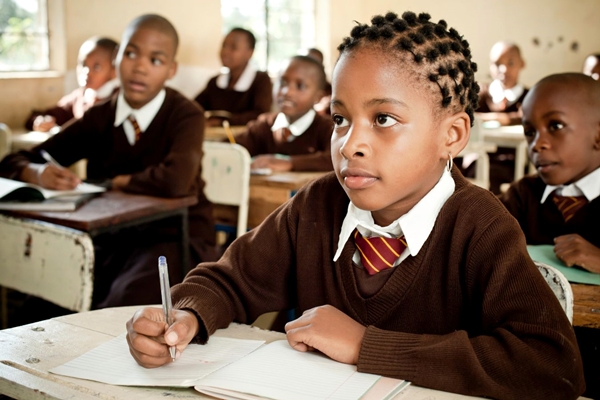
◎ "Public Service Sector"
Poland ranks first by providing public services equal to market income for the poorest people. Ukraine, currently at war, has in fact increased its spending on education and health significantly, raising its ranking from 24th to 21st place.
◎ "Tax Sector"
Australia took first place. Australia has made a significant contribution to reducing inequality by securing high levels of tax revenue and implementing welfare policies during the COVID-19 period. In addition, Bhutan, which achieved increased tax revenue through comprehensive tax reform, and Maldives, which introduced a new progressive personal income tax, both saw a significant improvement in inequality ratings.
◎ "Labor Policy Sector"
The top ten in the labor sector are high-income European countries, including Slovakia. They boast strong labor policies, low levels of unemployment, and low levels of wage inequality. The three nations with biggest improvements in the labor sector are Moldova with improved women's rights and reduced vulnerable employment; Palestine, which increased the minimum wage significantly; and Egypt, where the minimum wage was extended to the private sector.

On the other hand, the bottom 10 countries were all occupied by low-income Africa, notably relatively prosperous Nigeria, which ranked last. All of them explained that income inequality had worsened due to COVID-19, through the resultant increase in unemployment and vulnerable employment.
―
To improve inequality
―
Oxfam has proposed a solution to the deepening poverty and inequality around the world following the outbreak of COVID-19.
◎ In order for countries to reduce inequality:
1. Introduce tax policies such as increasing the top income tax rate and expanding progressive income taxation to large corporations and the wealthiest sector;
2. Efforts to provide education, health and universal social security services for the underprivileged;
3. Secure women's rights, mandate equal pay, ban discrimination, link the rate of minimum wage increase to the level of GDP growth, and extend childcare leave to all genders.
◎ In order for the international community to resolve inequality:
1. Strengthen global monitoring of major tax expenditure and labor policy implementation;
2. Shun austerity measures; emphasize reducing inequality in all programs and policy guidelines including those of IMF and World Bank;
3. Significantly expand aid to low-income countries by establishing a global fund.
In a report on inequality in July, Oxfam also pointed out that the wealth of the 10 richest people in the world has doubled since the outbreak of corona, while the real incomes of 99% of humanity have declined. The Russia-Ukraine war with its concomitant rising energy and food prices has markedly exacerbated inequality.
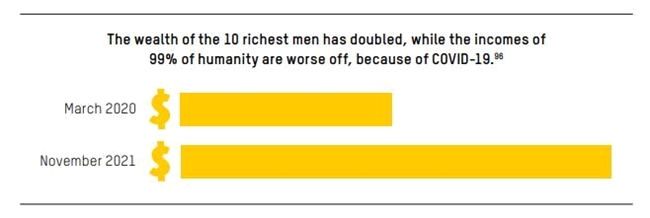
https://www.oxfam.org/en/research/inequality-kills
All in all, the report shows that even though a nation's economic level is not robust, inequality can be improved if the government of that country has the will and implements corresponding measures. Hopefully, the next inequality report will bring more hopeful examples.
Written by Sharon Choi
Director of Planning
Sunhak Peace Prize Secretariat

